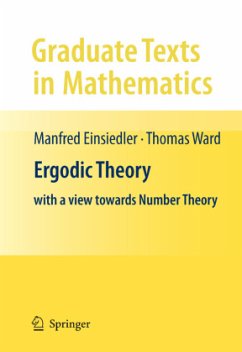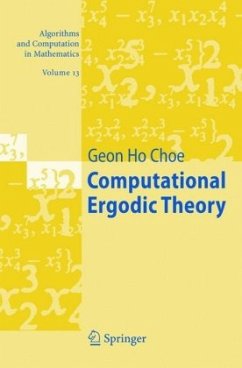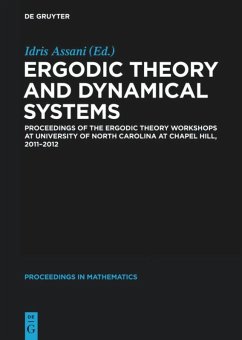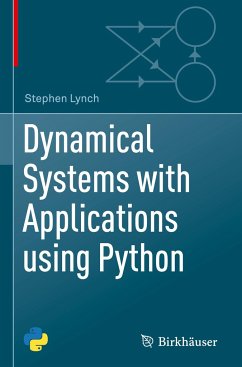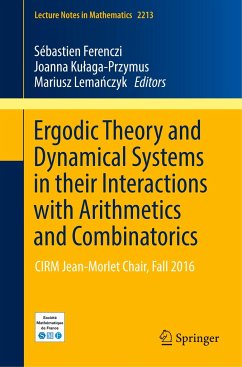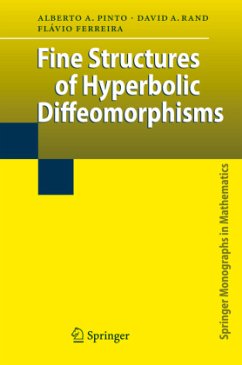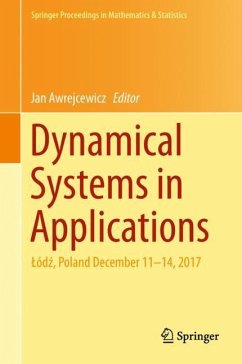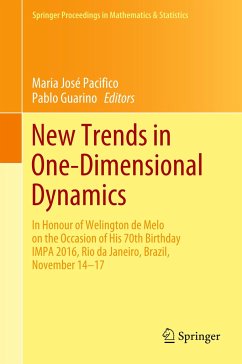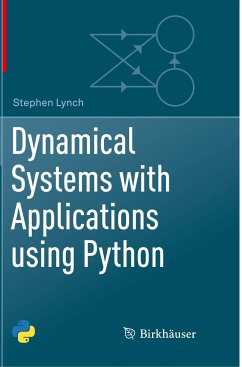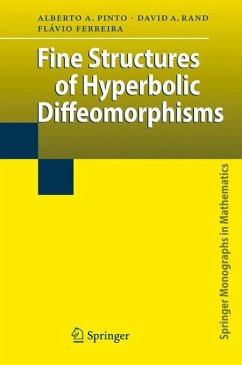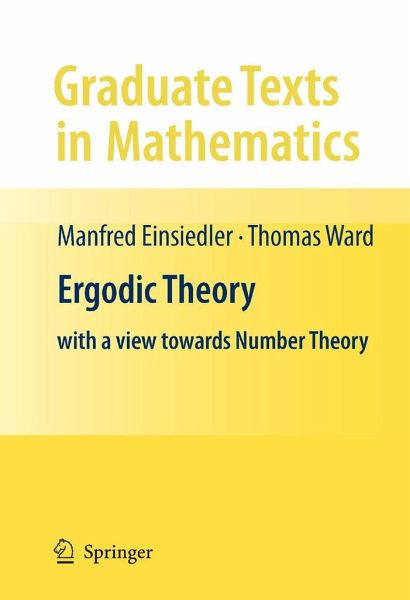
Ergodic Theory
with a view towards Number Theory

PAYBACK Punkte
24 °P sammeln!
This text is a rigorous introduction to ergodic theory, developing the machinery of conditional measures and expectations, mixing, and recurrence.Beginning by developing the basics of ergodic theory and progressing to describe some recent applications to number theory, this book goes beyond the standard texts in this topic. Applications include Weyl's polynomial equidistribution theorem, the ergodic proof of Szemeredi's theorem, the connection between the continued fraction map and the modular surface, and a proof of the equidistribution of horocycle orbits.Ergodic Theory with a view towards N...
This text is a rigorous introduction to ergodic theory, developing the machinery of conditional measures and expectations, mixing, and recurrence.
Beginning by developing the basics of ergodic theory and progressing to describe some recent applications to number theory, this book goes beyond the standard texts in this topic. Applications include Weyl's polynomial equidistribution theorem, the ergodic proof of Szemeredi's theorem, the connection between the continued fraction map and the modular surface, and a proof of the equidistribution of horocycle orbits.
Ergodic Theory with a view towards Number Theory will appeal to mathematicians with some standard background in measure theory and functional analysis. No background in ergodic theory or Lie theory is assumed, and a number of exercises and hints to problems are included, making this the perfect companion for graduate students and researchers in ergodic theory, homogenous dynamics or number theory.
Beginning by developing the basics of ergodic theory and progressing to describe some recent applications to number theory, this book goes beyond the standard texts in this topic. Applications include Weyl's polynomial equidistribution theorem, the ergodic proof of Szemeredi's theorem, the connection between the continued fraction map and the modular surface, and a proof of the equidistribution of horocycle orbits.
Ergodic Theory with a view towards Number Theory will appeal to mathematicians with some standard background in measure theory and functional analysis. No background in ergodic theory or Lie theory is assumed, and a number of exercises and hints to problems are included, making this the perfect companion for graduate students and researchers in ergodic theory, homogenous dynamics or number theory.



